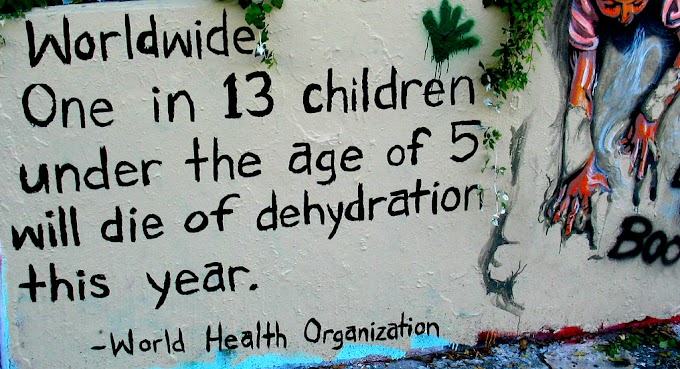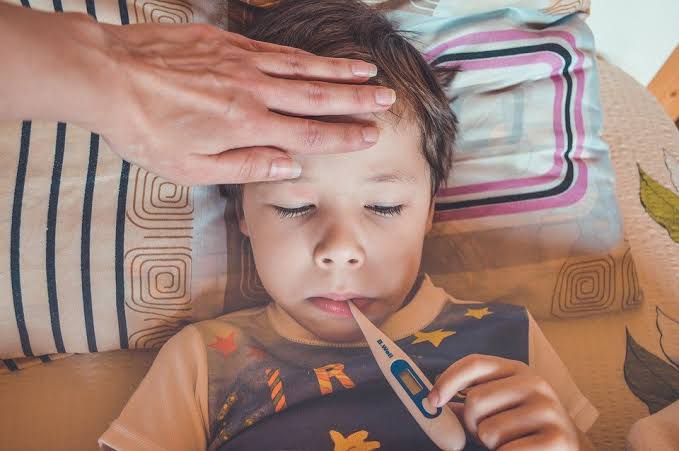What is depression
Depression is considered a serious medical condition that can worsen without proper treatment. Treatment seekers can often see an improvement in symptoms within a few weeks.
This can interfere with your daily tasks, resulting in time wastage and reduced productivity.
Conditions that can worsen due to depression include:
- Arthritis
- Asthma
- heart disease
- Cancer
- diabetes
- Overweight
It is important to realize that being unhappy is sometimes a normal part of life. Tragic and annoying events happen for everyone. But, if you are regularly motivated or motivated, you can overcome loneliness.
Depression is considered a serious medical condition that can worsen without proper treatment. Treatment seekers can often see an improvement in symptoms within a few weeks.
Symptoms of sadness (Depression)
Tragedy can be more than just a constant grief or "blue" feeling.
Primary depression can cause many types of symptoms. Some affect your mood, others affect your body. Symptoms may persist, or may occur.
Men may experience symptoms associated with:
Moods like anger, aggression, irritability, anxiety, restlessness
Emotional well-being such as emptiness, sadness, despair
Loss of interest in behavior, no longer enjoying favorite activities, fatigue, suicidal thoughts, excessive drinking, drug use and engaging in high-risk activities
Sexual desire, decreased sexual desire, decreased sexual performance, etc.
Cognitive skills, inability to concentrate, difficulty completing tasks, delay in response during conversation
Sleep patterns such as insomnia, restless sleep, excessive sleep, and no sleep at night
Women may experience symptoms associated with:
Irritable mood
Emotional well-being, such as sadness or emptiness, anxiety or despair
Loss of interest in activities, withdrawal from social interactions, behavior like suicidal thoughts
Cognitive skills, such as slow thinking or speaking
Sleep patterns such as difficulty falling asleep at night, waking up early in the morning and getting too much sleep
Physical energy such as reduced energy, increased fatigue, loss of appetite, change in weight, aches, pains, headaches, cramps
Children may experience symptoms associated with:
Mood, irritability, anger, mood swings, crying, etc.
A feeling of helplessness (e.g. "I can't do anything right") or emotional well-being such as frustration, crying, grief
Problems in school or refusal to go to school, avoiding friends or siblings, thinking about dying or committing suicide
Cognitive skills, difficulty concentrating, decreased school performance, grade changes, etc.
Sleep patterns such as difficulty sleeping or excessive sleep
Cause of tragedy (Depression)
There are many reasons for grief. They can range from biological to situational.
Common reasons include:
family history. If you have a family history of depression or other illnesses at this stage, you are more at risk of developing depression.
Childhood Trauma
Brain structure. There is a higher risk of depression if the frontal lobe of your brain is functioning less. However, scientists are not aware that this occurs before or after the onset of depressive symptoms.
medical conditions. Certain conditions, such as chronic pain, insomnia, chronic pain or inattentive hyperactivity disorder (ADHD), may put you at greater risk.
drug use. History of drug or alcohol abuse may affect your risk.
About 21 percent of people with substance abuse problems experience depression. In addition to these factors, other risk factors for depression include:
Low self-esteem or self-criticism
Personal history of mental illness
Some drugs
Events of depression such as loss of a loved one, financial problems or divorce
Many factors can affect feelings of depression, as well as who creates the condition and who does not.
The causes of depression are often associated with other aspects of your health.
However, in many cases, health care providers cannot determine the cause of grief.
Depression test
There is no test to diagnose depression.
In most cases, they will ask a series of questions about you:
- Conditions
- moment
- sleep patterns
- functional status
- The attitude
- Since depression can be associated with other health issues, your healthcare provider may order a physical exam and blood work.
Do not ignore the symptoms of depression. If your mood does not improve or worsen, seek medical attention. Depression is a serious mental illness with potential for complications.
If left untreated, complications may include:
- Lose weight or lose weight
- physical pain
- Content access issues
- panic attacks
- Relationship issues
- Social loneliness
- suicidal thoughts
- Hurting myself
- Types of tragedy
Depression can be classified according to the severity of symptoms. Some experience mild and temporary states, while others experience severe and persistent stages of depression.
There are two main types: primary depressive disorder and recurrent depressive disorder
Primary depression
Primary depression is a severe form of depression. They are characterized by persistent feelings of loneliness, hopelessness, and worthlessness.
To diagnose clinical depression, you should experience the following 5 or more symptoms within 2 weeks:
Stay tight all day
Loss of interest in most regular activities
Significant weight loss or increase
Sleeplessness or sleepiness
Slow thinking or movement
Fatigue or low energy most days
Idle or guiltless
Loss of concentration or uncertainty
Constant thoughts of death or suicide
There are various sub types of major depressive disorder referred to as "depression" by the American Depression Association.
these:
- Random features
- Worry worry
- Mixed features
- Initiation of peripartum during pregnancy or after delivery
- Seasonal pattern
- Depressive features
- Psychological characteristics
- Catatonia
Prevents loneliness (depression)
Tragedy is not generally considered avoidable. It is difficult to identify what causes it, ie it is difficult to stop it.
Once you experience a phase of depression, you can be better prepared to prevent future episodes, knowing that lifestyle changes and treatments will help.
Techniques that can help include:
- regular exercise
- lots of sleep
- Maintenance therapy
- Reduces stress
- Build strong relationships with others
- Other techniques and ideas can help you avoid depression.
- Bipolar depression
When a person experiences a depressive episode, bipolar depression occurs in some type of bipolar disorder.
For example, bipolar 2 episodes range from high-energy mania to low-energy depression levels.
It depends on the type of bipolar disorder that you have. Diagnosing bipolar 1 should not be disappointing, it should only have the presence of manic episodes.
Symptoms of depression in people with bipolar disorder include:
Loss of interest or pleasure from normal activities
Sad, worried, worried or empty
No energy or struggle to complete tasks
Difficulty remembering or remembering
Excessive sleep or insomnia
Weight gain or loss of weight as a result of increased or decreased appetite
Thinking about death or suicide
If bipolar disorder is treated, many people will experience fewer and less severe symptoms of depression if they experience episodes of depression.
depression and anxiety
Depression and anxiety can occur simultaneously in a person. In fact, research suggests that reliable sources for depressive disorders are symptoms of anxiety in more than 70 percent of the population.
Although they are thought to be caused by various things, sadness and anxiety can cause many similar symptoms, including:
jealousy
Memory or concentration difficulty
Sleep problem
Both conditions share some common remedies.
It can treat both anxiety and sadness:
Similar treatment to cognitive behavioral therapy
Medicine
Alternative medicine including hypnosis therapy
If you feel that you are experiencing any of these conditions, or both, make an appointment to talk to your healthcare provider. You can work with them to identify and treat the combined symptoms of anxiety and depression.





0 Comments
Please do not enter any spam link in the comment box.
Emoji